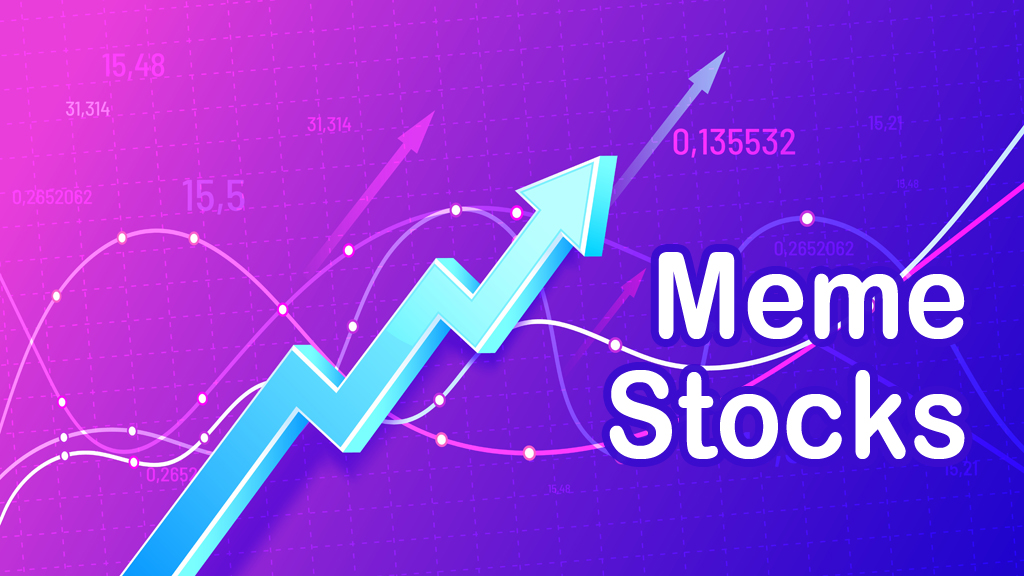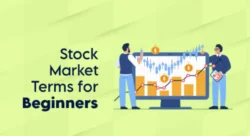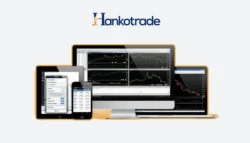Meme stocks have transformed the world of investing, turning social media platforms into powerful drivers of market activity. Fueled by online communities on Reddit, X, and TikTok, these stocks skyrocket in value due to viral enthusiasm rather than traditional financial metrics. From the iconic GameStop surge of 2021 to ongoing waves of retail investor coordination, meme stocks represent a new era where collective sentiment can challenge institutional dominance, creating both opportunities and significant risks for traders.
This phenomenon, born in the age of commission-free trading and amplified by platforms like Robinhood, has empowered retail investors to influence markets in unprecedented ways. However, the volatility and speculative nature of meme stocks make them a high-stakes gamble, often detached from company fundamentals. This article explores the mechanics of meme stocks, their benefits and risks, methods to identify them, their potential for scams, and real-world examples, offering a comprehensive guide for navigating this unpredictable terrain.
What is a Meme Stock?
A meme stock is a publicly traded company’s stock that gains rapid popularity and trading volume due to viral attention on social media platforms and online forums, such as Reddit’s r/wallstreetbets, X, TikTok, or Discord. The term “meme” originates from the concept of ideas or content that spread rapidly online, often through humorous or culturally resonant images, videos, or posts. In the context of stocks, a meme stock’s price is driven by collective enthusiasm from retail investors rather than traditional financial metrics like earnings or revenue growth.
Key Characteristics
- Social Media Influence: Meme stocks are propelled by discussions, memes, and coordinated trading strategies on platforms like Reddit, X, and StockTwits.
- High Volatility: Prices can skyrocket or plummet in hours or days, often unrelated to the company’s financial health.
- Retail Investor Dominance: Unlike traditional stocks driven by institutional investors, meme stocks are primarily traded by individual retail investors, often young and inexperienced.
- Short Squeeze Potential: Many meme stocks are targeted due to high short interest, where retail investors buy en masse to force short sellers to cover their positions, driving prices higher.
Historical Context
The meme stock phenomenon emerged prominently in 2020, with its defining moment in January 2021 when GameStop (GME) surged from $17 to over $480 per share. This was driven by retail investors on Reddit’s r/wallstreetbets, who targeted the stock due to its high short interest by hedge funds. The resulting short squeeze caused massive losses for short sellers and showcased the power of collective retail action. The rise of commission-free trading platforms like Robinhood, which eliminated barriers for retail investors, further fueled this trend. Since then, meme stocks have become a recurring feature in financial markets, with new examples emerging regularly.
Benefits of Meme Stocks for Traders
Meme stocks offer unique opportunities for traders, particularly those comfortable with high-risk strategies. Below are the primary benefits:
- Potential for High Returns:
- Meme stocks can deliver extraordinary short-term gains. For example, GameStop’s 2021 surge resulted in returns exceeding 1,000% for some investors who timed their trades well.
- Other stocks, like AMC Entertainment, saw similar spikes, with shares rising from under $2 to over $70 in 2021.
- Sense of Community:
- Online forums foster camaraderie among retail investors, who share strategies, celebrate successes, and support each other. This sense of belonging appeals to younger investors, particularly millennials and Gen Z.
- The collective action can feel empowering, as traders unite to challenge institutional investors perceived as market manipulators.
- Challenging Traditional Finance:
- Meme stock trading is often seen as a form of financial rebellion against Wall Street. Retail investors view their actions as democratizing investing and countering the influence of hedge funds and other institutional players.
Risks of Meme Stocks for Traders
Despite their allure, meme stocks are inherently risky, and investors should approach them with caution. Key risks include:
- Extreme Volatility:
- Meme stocks can experience dramatic price swings. For instance, GameStop’s stock fell from $480 to under $50 within months in 2021, leaving late investors with significant losses.
- This volatility makes meme stocks unsuitable for long-term investors seeking stability.
- Lack of Fundamental Backing:
- Meme stock prices are often disconnected from the company’s financial performance. Companies like GameStop and AMC were struggling businesses during their meme stock surges, making their high valuations unsustainable.
- When online hype fades, prices can collapse, as seen with Bed Bath & Beyond, which filed for bankruptcy in 2023 after meme-driven surges.
- Regulatory and Market Risks:
- Regulatory bodies like the U.S. Securities and Exchange Commission (SEC) may investigate meme stock trading for potential market manipulation, leading to trading halts or restrictions.
- During the GameStop frenzy, platforms like Robinhood restricted buying, sparking controversy and limiting traders’ ability to act.
- Emotional and Psychological Stress:
- The fast-paced nature of meme stock trading can lead to impulsive decisions driven by fear of missing out (FOMO) or panic selling during price drops.
- Inexperienced investors are particularly vulnerable to emotional stress, which can exacerbate losses.
How to Identify Meme Stocks
Identifying meme stocks requires vigilance and an understanding of online and market dynamics. Here are key indicators:
- High Social Media Activity: Stocks trending on platforms like X, Reddit, or TikTok, often with hashtags or memes, are potential meme stocks. For example, posts about “#GME” or “#AMC” signaled their meme status.
- Unusual Trading Volumes: A sudden spike in trading volume, without corresponding company news, suggests retail investor coordination.
- Rapid Price Movements: Unexplained price surges or drops, often in short timeframes, indicate meme stock activity.
- Online Forum Discussions: Platforms like r/wallstreetbets or StockTwits are hubs for meme stock chatter. Monitoring these can reveal emerging meme stocks.
Indicators of Meme Stocks
| Indicator | Description | Example |
|---|---|---|
| Social Media Buzz | Trending hashtags or frequent mentions on X, Reddit, or TikTok. | #GME trending on X in 2021. |
| Unusual Trading Volume | Sudden increase in shares traded, often in millions, without clear news. | AMC’s volume spiked in May 2021. |
| Rapid Price Changes | Stock price surges or drops significantly in hours or days. | GameStop’s $17 to $480 rise. |
| Online Forum Activity | Discussions on Reddit’s r/wallstreetbets or StockTwits promoting a stock. | r/wallstreetbets posts on GME. |
Are Meme Stocks Part of a Scam?
The meme stock phenomenon is not inherently a scam, but it can be exploited for fraudulent purposes. The collective action of retail investors is often genuine, driven by a desire to profit or challenge institutional investors. However, certain risks raise concerns:
- Pump-and-Dump Schemes: Some individuals or groups artificially inflate a stock’s price through coordinated buying or hype, then sell at the peak, leaving others with losses. This mirrors historical stock manipulation tactics before the SEC’s creation in 1934.
- Misinformation: Social media can spread false or exaggerated claims about a company’s prospects, misleading investors. For example, rumors of acquisitions or product launches can drive prices up temporarily.
- Regulatory Scrutiny: The SEC has investigated meme stock trading for potential manipulation, particularly during the 2021 GameStop surge. While no widespread fraud was confirmed, the risk of manipulation persists.
Despite these concerns, many meme stock participants are legitimate retail investors acting collectively. Investors should verify information and avoid acting solely on social media hype to mitigate scam risks.
Examples of Meme Stocks and Scams
Prominent Meme Stocks
- GameStop (GME): The archetype of meme stocks, GameStop’s 2021 surge was driven by a short squeeze orchestrated on r/wallstreetbets. Its price rose from $17 to over $480, but later fell, causing losses for late investors.
- AMC Entertainment (AMC): AMC’s stock soared from under $2 to over $70 in 2021, fueled by retail investors targeting its high short interest. Despite the hype, its struggling business led to volatility and declines.
- Trump Media & Technology Group (DJT): In 2024, this stock, tied to Truth Social, was labeled a meme stock due to its volatile price movements driven by political sentiment rather than financial performance.
- Bed Bath & Beyond (BBBY): A meme stock in 2021–2022, its price surged multiple times before the company’s 2023 bankruptcy, resulting in significant losses for investors holding shares.
Scams and Investor Losses
- Pump-and-Dump Schemes: Some promoters have used social media to hype obscure stocks, selling their shares at peaks and leaving retail investors with losses when prices crash.
- Misinformation: False rumors, such as fake acquisition news, have driven temporary price spikes in meme stocks, only for prices to collapse when the truth emerges.
- Celebrity Endorsements: Certain influencers or celebrities have been accused of promoting meme stocks for personal gain, misleading followers into risky investments.
Meme Stock Examples and Outcomes
| Stock | Peak Price (2021) | Key Driver | Outcome |
|---|---|---|---|
| GameStop (GME) | $480+ | Short squeeze via r/wallstreetbets | Huge gains for early investors; losses for latecomers as price fell to ~$50. |
| AMC Entertainment (AMC) | $70+ | Short squeeze and retail hype | Volatile swings; losses for many as fundamentals remained weak. |
| Bed Bath & Beyond (BBBY) | $50+ | Social media hype | Bankruptcy in 2023 led to near-total losses for shareholders. |
| Trump Media (DJT) | ~$80 (2024) | Political sentiment | Volatile, with prices driven by hype rather than financials. |
Conclusion
Meme stocks represent a dynamic and controversial aspect of modern investing, driven by the power of social media and retail investor enthusiasm. While they offer the potential for significant short-term gains and a sense of community, their extreme volatility, lack of fundamental backing, and susceptibility to manipulation make them high-risk investments. Investors should approach meme stocks with caution, conducting thorough research and avoiding decisions driven by FOMO or unverified online hype.
To navigate this landscape, monitor social media trends, trading volumes, and price movements, but always cross-reference with fundamental analysis. Regulatory oversight and the potential for scams underscore the need for vigilance. As meme stocks continue to evolve, they highlight the growing influence of retail investors in shaping financial markets, for better or worse.






